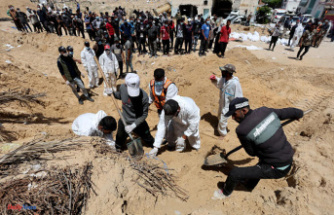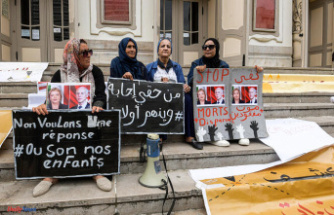Cyclone Freddy, with its exceptional longevity, killed more than 400 people in southern Africa, the vast majority of them in Malawi. The toll worsened further on Thursday evening, March 16, and the hope of finding survivors is becoming increasingly slim. Freddy struck twice in a few weeks in the region, killing 73 people in its path in Mozambique, 17 in Madagascar and now 326 in Malawi. This is announced by the president of this country, which is one of the poorest on the planet, in his latest national report published on Thursday evening.
"Since yesterday [Wednesday], the death toll from this disaster has increased from 225 to 326, the number of displaced has more than doubled" exceeding 183,000 in Malawi, said Lazarus Chakwera, traveling to Blantyre, economic capital and epicenter bad weather.
Formed in early February off Australia, the cyclone, which is about to be ranked the longest on record, made an unprecedented crossing of more than 8,000 kilometers, from east to west, in the Indian Ocean. It first made landfall on February 21, on the east coast of Madagascar, killing 7 people. The phenomenon, which has been raging for more than 35 days, then hit Mozambique, killing 10 people.
It then turned back in early March and hit Madagascar a second time, killing 10 more. It also returned to Mozambique, where it caused another 63 deaths. But it was in Malawi, which had so far only felt an increase in rainfall levels and where the cyclone finally hit on Monday, that Freddy wreaked the most havoc.
Weakened but with gusts still reaching 200 km / h on its return, the phenomenon carried torrential rains which caused heavy flooding and landslides. The densely populated region of Blantyre is devastated. In the township of Chilobwe, near Blantyre (the capital), the vulnerable houses made of bricks and earth were ravaged by impressive mudslides. But life has already slowly resumed, markets and businesses have reopened.
Call for emergency mobilization
President Chakwera reiterated his call for help on Thursday, saying "the needs are huge". The head of state had called the day before for international help to cope with the immense destruction, describing the disaster as a "national tragedy". Mr Chakwera on Wednesday declared two weeks of national mourning, with flags flown at half-mast for the first seven days. “This cyclone is the third in thirteen months to hit our country. Proof of the realities of climate change,” he said in a televised speech.
In neighboring Mozambique, President Filipe Nyusi, who visited the most affected province, Zambezia (center), bordering Malawi on Wednesday, also called for an "emergency" mobilization of national and international aid to "repairing destroyed infrastructure".
According to the latest forecast, Freddy should dissipate over land, but the rains are likely to persist for several more days. The cyclone has been raging for more than 35 days. It is on the way to being classified as the longest cyclone in history by meteorologists.
Tropical storms and cyclones appear several times a year in the southwest Indian Ocean, during the hurricane season from November to April.












